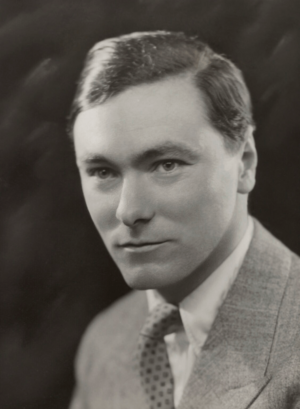Derek Jackson facts for kids
Quick facts for kids
Derek Jackson
|
|
|---|---|
 |
|
| Born |
Derek Ainslie Jackson
23 June 1906 |
| Died | 20 February 1982 (aged 75) Lausanne, Switzerland
|
| Nationality | British |
| Alma mater | Trinity College, Cambridge |
| Known for | Atomic physics |
| Awards | Fellow of the Royal Society |
| Scientific career | |
| Fields | Spectroscopy |
| Institutions | Clarendon Laboratory, Oxford |
| Doctoral advisor | Frederick A. Lindemann |
Derek Ainslie Jackson, OBE, DFC, AFC, FRS (born June 23, 1906 – died February 20, 1982) was a talented British scientist and a skilled jockey. He was known for his important work in understanding atoms and for his bravery during World War II.
Contents
Early Life and Science Discoveries
Derek Jackson was born in 1906. His father was a successful Welsh businessman named Sir Charles Jackson. From a young age, Derek showed a great interest in science.
He studied spectroscopy, which is a way to study how light interacts with matter. This helps scientists learn about the tiny parts that make up atoms. Working with Professor Frederick Lindemann, Derek made a big discovery. He was the first to accurately measure a tiny magnetic property inside the nucleus of an atom, using caesium as an example.
A Passion for Horse Racing
Even with his important science work at Oxford University, Derek Jackson had another big passion: steeplechase riding. This is a type of horse race where horses jump over obstacles.
He loved riding horses and first competed in the famous Grand National race in 1935. After World War II, he continued his love for horse racing. He rode in two more Grand National races, even competing when he was 40 years old.
Service in World War II
During World War II, Derek Jackson served with great courage in the RAF. He made important scientific contributions to help protect Britain from air attacks. He also helped with bombing missions.
He flew for over a thousand hours as a navigator. Many of these flights were dangerous combat missions in night-fighter planes. He was part of No. 604 (County of Middlesex) Squadron. For his bravery and service, he received several special awards. These included the DFC, the AFC, and the OBE.
Later Life and Achievements
After the war, Derek Jackson continued his scientific work. In 1947, he was recognized as a Fellow of the Royal Society. This is a very high honor for scientists in the United Kingdom.
He lived in different countries like Ireland, France, and Switzerland. He continued his research in spectroscopy in France. He was also honored by France, becoming a chevalier de la Légion d'honneur. This is a prestigious award from the French government.
Derek Jackson was married several times during his life. He passed away on February 20, 1982.
Images for kids


